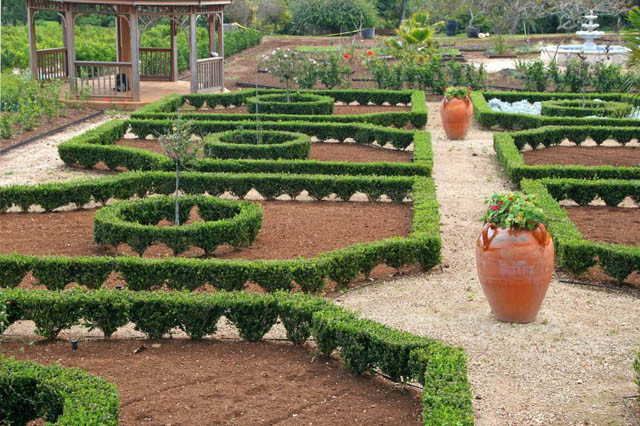Formal Garden - The Best Plants to Grow in your Garden
Symmetry, clean lines, and a focus on structure characterize formal gardens. These gardens often feature geometric shapes, meticulously manicured plants, and an overarching sense of order and elegance. Here are some excellent plant choices for a formal garden:
- Boxwood (Buxus spp.): Boxwood is a classic choice for formal gardens. Its small leaves and dense growth make it ideal for shaping into topiaries or using as hedging to create crisp, clean lines.
- Roses (Rosa spp.): The versatility and classic elegance of roses make them a favorite in formal settings. Hybrid teas, with their single, large flowers, are often used as focal points, while climbing varieties can adorn trellises or walls.
- Lavender (Lavandula spp.): Lavender’s upright growth habit and beautiful purple flowers can add color and fragrance. It’s often used in knot gardens or as a border plant.
- Yew (Taxus baccata): Yews are often used for hedging in formal gardens. They can be pruned into precise shapes and their evergreen leaves provide year-round interest.
- Ornamental grasses: Varieties like ‘Karl Foerster’ feather reed grass or Miscanthus sinensis can add an architectural element to a formal garden, especially when used in geometric plantings or as a structural backdrop.
- Topiaries: Topiaries of varying shapes and sizes can act as the perfect focal points or accents in a formal garden layout. Species like boxwood, yew, or holly are often used for these structures.
By choosing these plants, you can add structure, color, and interest to your formal garden, creating a space that is both elegant and timeless.

